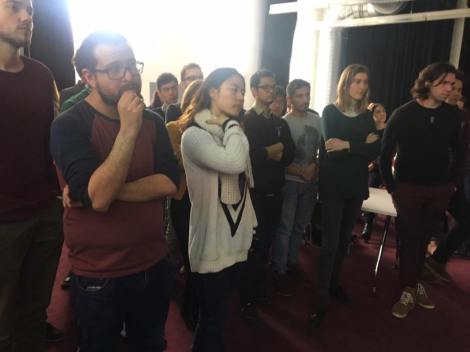

Truth is an exploration that is done through dialogue. Education should follow that.
These are 1st year urbanism students in a debating session about ethics and the role of planners and designers last week in one of my courses (with Marcin Dąbrowski).
Like the great Habermas understood, there is something called communicative reason, which is highly dependent on your ability to articulate your ideas. Words shape us. But it’s important to be able to listen to other people’s ideas with respect, knowing that we must seek for the truth together, because no one is the owner of absolute truth. Knowing is an exploration.
Another great philosopher, Foucault, wrote about the power relationships entrenched in language. The ability to speak is powerful, but often times people are silenced because their ability to speak is not recognized. Their narratives and stories are shunned or discredited, or simply ignored. This is called oppression.
Yet another thinker, Paulo Freire, tells us we must try to empower people, and to empower ourselves, by recognizing other kinds of knowledge that are not recognized by the super structures in which we live and that shape our perception of reality. And in order to do that, we must listen and engage in real conversations. I just wish people can open lines of dialogue in which there is mutual respect and where all voices are heard and ideas are discussed.
Facebook is great and terrible simultaneously. It enables and disables conversations. I feel that we must promote dialogue in the classroom, face to face, when the true effect of words can be measured. Dialogue is powerful and empowering.
